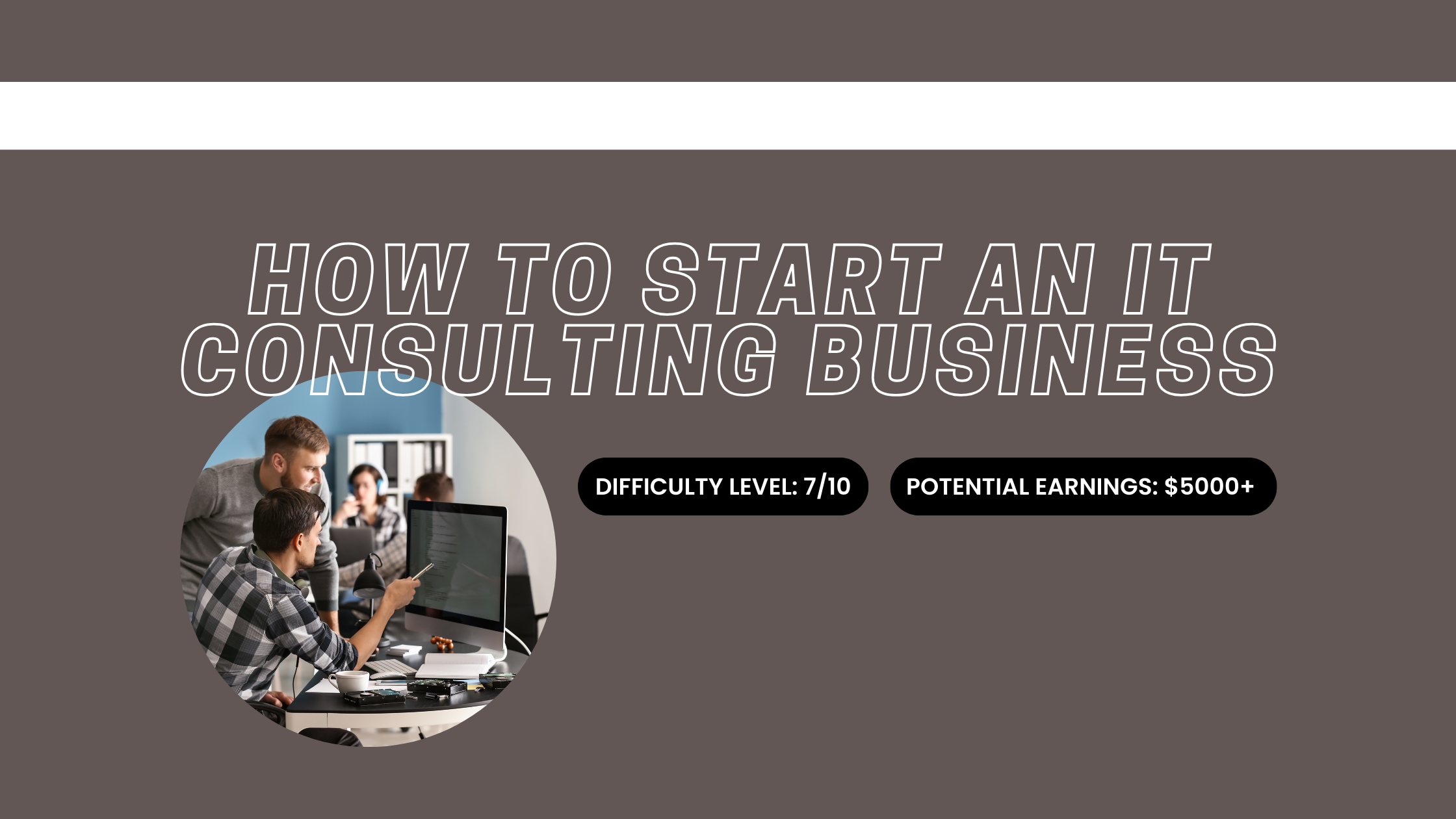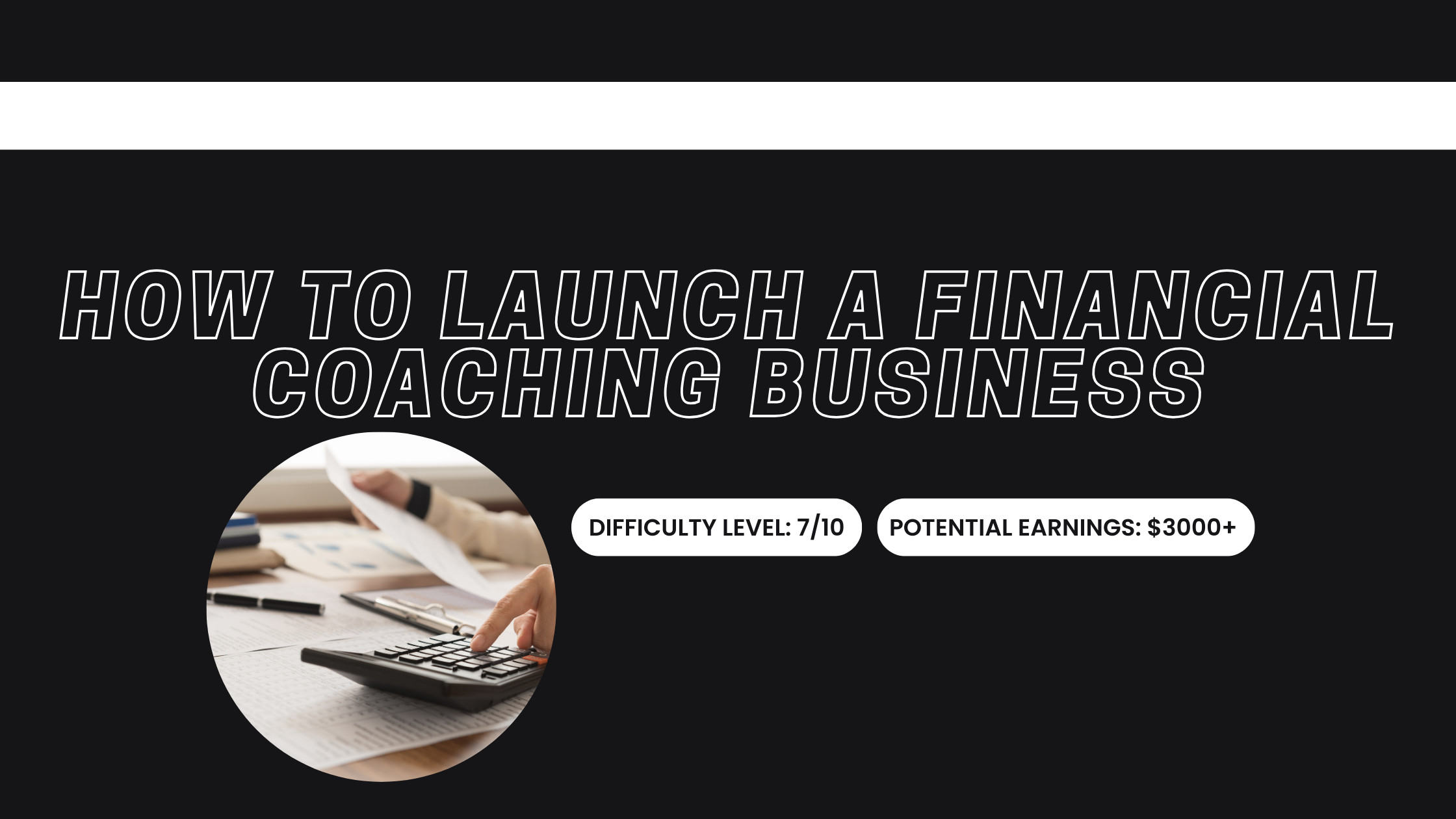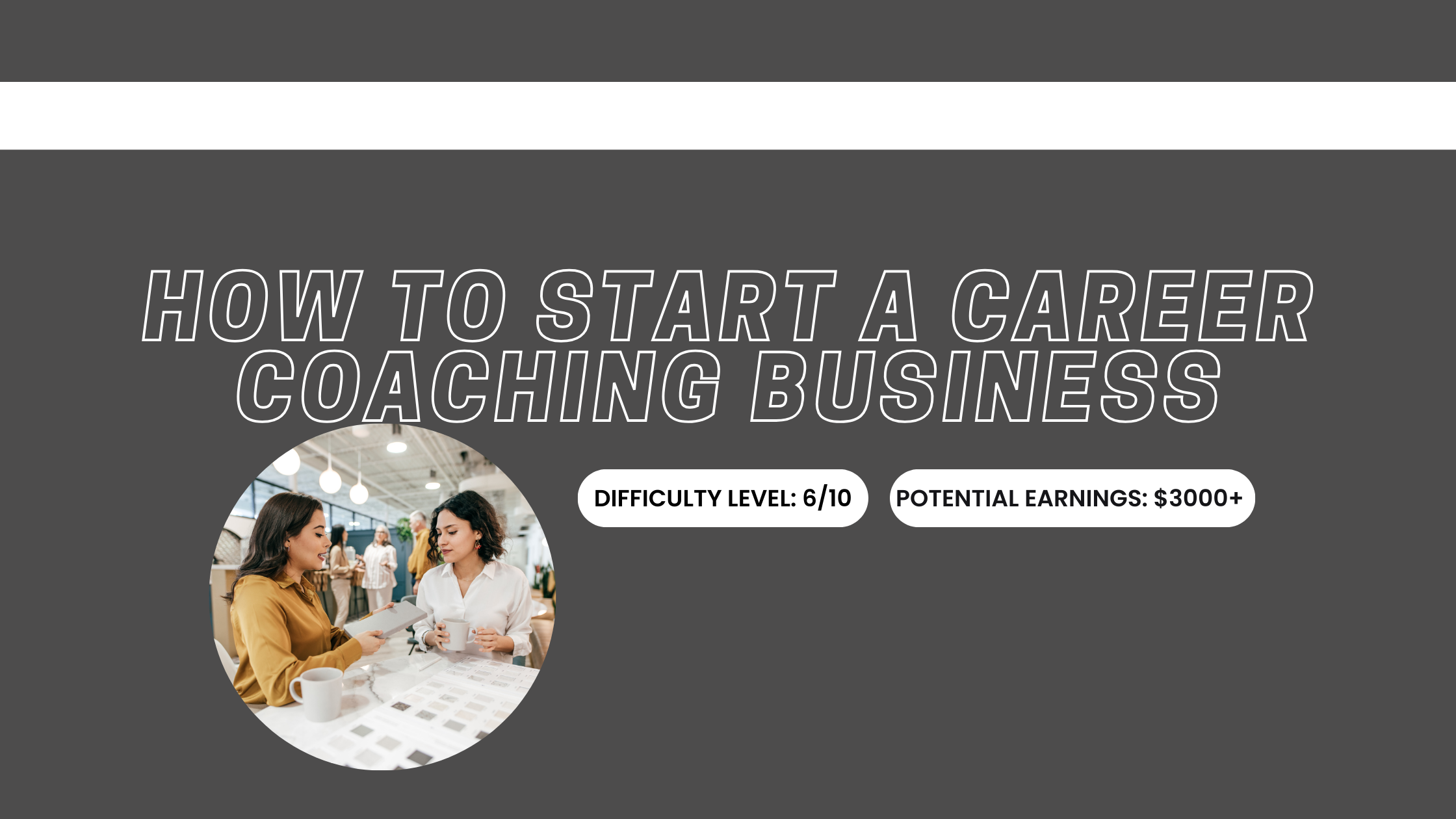How to Start a Career Coaching Business
Time & Money
Difficulty
6/10
Weekly Time Commitment
15-25 hours
Earnings Per Month
$3,000 - $12,000
How to Become a Career Coach
For anyone considering the question of how to become a career coach, it's important to understand that this is a challenging endeavor that will require strong interpersonal skills, patience, and heaps of compassion. However, if you feel up to the challenge, this can be one of the most rewarding gigs out there, both financially and emotionally. This side gig is ideal if you’re passionate about helping others achieve their professional goals, are a good listener, and can provide strategic advice tailored to individual needs. However, if you prefer solitary work or struggle with managing client expectations and providing motivation, this might not be the best fit. If you're looking for a simple answer on how to become a career coach, it doesn't exist. It takes a mix of emotional intelligence, drive, compassion, and receptiveness to the individuality and personal strengths of clients.
Preparation: How to Start a Career Coaching Business
If you're consider how to start a career coaching business, the first step is to enhance your credentials as much as possible. You can do this through a coaching certification or career development course to build your credibility. Research job market trends, revise interview techniques, and get to know resume writing best practices by attending industry publications and workshops. Create your business plan detailing your services, target clients and pricing. Set up a professional online presence with a website that showcases client testimonials, your background, and coaching services. Lastly, make engaging coaching materials such as worksheets, templates and guides, for more value-packed sessions.
Execution
Identify Your Niche
To start a career coaching business, first identify your specific niche. This can include entry level professionals, mid-career changers, or executives looking for leadership coaching. By narrowing your focus, you can serve a niche audience and stand out from other general career coaches. You can specialize too - speak to the needs and challenges of that demographic and your marketing will be more targeted. Conduct market research to determine if your niche is sufficiently populated with customers and suited to your strengths and experience. This step creates a strong value proposition for potential clients.
Create a Service Menu
Develop a service menu with options for different client needs, such as resume or LinkedIn profile optimization, mock interview coaching, or comprehensive career planning. Describe each service, its duration and desired outcome. Such transparency enables potential clients to understand your services and to select the right one for their career stage. Offering different service tiers like basic and premium packages can appeal to different budgets. A defined service menu provides clients with clarity around your service, while demonstrating professionalism.
Set Up Your Online Presence
Build a professional website that conveys your background, credentials and services. Include client testimonials/case studies to demonstrate expertise. SEO techniques should be used to optimize your site so clients can find you easily. Expand your online presence to include career tips, client success stories and articles that highlight your knowledge. Regular posting and interaction will help establish you as a thought leader in career coaching.
Offer Free Introductory Consultations
To draw in potential clients, offer free introductory consultations. These sessions allow you to understand a client’s needs and give them a glimpse of how your coaching can help. Use this time to ask questions about their career goals, current challenges, and what they hope to achieve with coaching. Providing valuable insights during these consultations can build trust and encourage clients to commit to a paid service. This approach also helps you assess whether the client is a good fit for your coaching style, ensuring a mutually beneficial working relationship.
Network with Industry Professionals
Networking is a vital part of growing your career coaching business. Connect with HR professionals, recruiters, and other career coaches to expand your circle and open referral opportunities. Attend industry conferences, webinars, and local networking events to meet new contacts and stay informed about trends in job markets. Collaborations, such as hosting joint webinars or co-writing articles, can also help you reach a wider audience. Building strong industry relationships positions you as a well-connected coach and adds value to your clients by giving you access to broader career insights.
Develop a Strong Marketing Strategy
Craft a comprehensive marketing plan that leverages multiple channels, such as social media, email newsletters, and online ads. Use your social media platforms to share engaging content, like career tips and success stories, to keep potential clients interested. Incorporate testimonials and real-life case studies to build credibility and showcase your results. Engage in email marketing by sending newsletters with helpful career advice and updates on your services. Consistent, targeted marketing helps keep your services top of mind and attracts new clients.
Gather Feedback and Continuously Improve
Collect client feedback after each coaching package or session to assess your effectiveness and identify areas for improvement. Positive testimonials can be displayed on your website and social media, while constructive feedback can help refine your methods and enhance client experiences. Regularly updating your services based on client input ensures you stay relevant and meet their evolving needs. Adapting your coaching style and materials over time keeps your business competitive and helps maintain client satisfaction.
Bumps In The Road
Gaining Initial Clients
Getting clients is hard at first, and many new coaches struggle with trust and visibility before they have developed a client base. To give yourself a leg up, try contacting friends, colleagues and family members who may be able to refer clients to you. Start with introductory sessions at a discount in order to build your portfolio. Displaying strong testimonials and success stories on your site will bring in future clients, so getting new clients becomes easier as you go (so long as you're delivering a great service).
Managing Client Expectations
Clients sometimes have unrealistic expectations of landing a good job in weeks or changing careers overnight. Managing those expectations requires open communication about what career coaching involves and typical timelines for achieving certain goals. Outline your coaching process in your first consultations and give regular updates to clients. Being upfront about possible challenges and the work required of them creates realistic expectations and more favourable outcomes.
Balancing Multiple Clients
Growing your business means managing a bigger client base, which can become overwhelming. If not addressed early this may cause burnout and lead to poorer service quality. Avoid this by scheduling catchup sessions, keeping notes organized, and tracking client progress with project management tools. Fix boundaries for your working hours and consider automating some of your workstreams where possible. Prioritizing self-care & a healthy work life balance will lead to greater efficiency & satisfaction for you & your clients.
Continue Learning

IT Consulting
Start an IT consulting business by identifying your niche and gaining relevant certifications. Promote your services through online platforms.

Financial Coaching
Launch a financial coaching business by gaining certifications in personal finance, budgeting, and investment strategies to build credibility.
